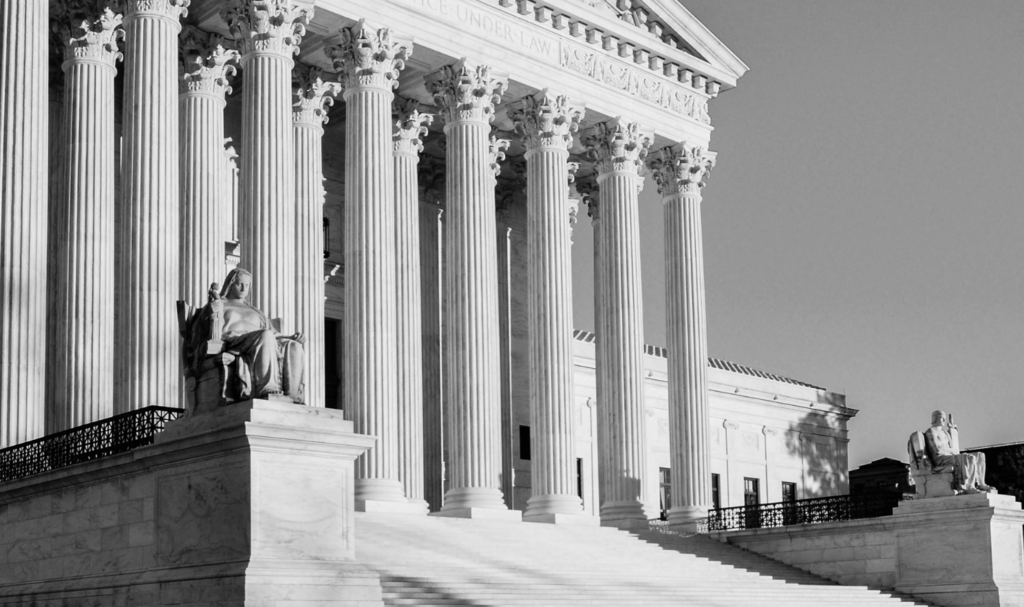On Monday, the Supreme Court declined to rule on 10 cases that concerned the scope of the Second Amendment. In a 2-to-7 decision, with Justices Kavanaugh and Thomas dissenting, the court not only disallowed its conservative wing to expand the Second Amendment’s interpretation, but also prevented its liberal wing to further regulate the amendment.
The high court’s decision to do so came after a 10-year long silence on gun rights issues, with the Court’s last decision made in 2008’s landmark case, District of Columbia v. Heller, which held that the Second Amendment protects citizens’ rights to keep and bear arms for self-defense at home.
The Supreme Court’s silence was almost broken in April, which, similar to the most recent 10 cases, was ultimately dismissed. This case, New York State Rifle and Pistol Association v. City of New York, concerned a New York City law that permitted residents who owned firearms to be able to transport them only to the seven shooting ranges within city limits. The law also stipulated that the transportation of these firearms must be continuous.
The City of New York argued that the law did not impose a burden on Second Amendment rights and that it ensured a reasonable means in protecting public safety. The New York State Rifle and Pistol Association, a gun-rights and owners activist group, argued that the law was too restrictive in that it prohibited gun owners from transporting their guns to any second homes for self-defense, or to any recreational activities such as shooting competitions upstate or target practice across state lines.
In an unforeseen legislative twist, after the Supreme Court agreed to hear this case, the city of New York passed a law allowing licensed owners to transport handguns to other locations outside city limits such as a second home or shooting range. More so, the state of New York amended its handgun licensing statute to require localities to allow this transportation between counties and states. The state’s law also prohibited the reinstatement of the previous law.
Because of this new law, attorneys for New York argued that this case should be dismissed. Justice Ginsburg agreed, stating that the gun owners, “have gotten all the relief that they sought” and, asking, “what’s left of this case?”
On the other side of the court, Justice Alito disagreed, citing the gun owners’ claims for damages as well as the law’s barring stops in the handguns’ transportation such as bathroom or coffee breaks. “Petitioners got most, but not all, of the prospective relief they wanted,” Alito wrote, “and that means that the case is not dead.”
Without addressing Alito’s arguments, the case was ultimately dismissed on a vote of 3-6.
Just two months later, the Court declined to vote on these 10 new cases concerning state and federal gun law without the majority explicitly stating a reason for doing so. Interestingly enough, of the two dissenting justices, Justice Alito was not one of them.
Five of the 10 cases ask if the Second Amendment allows the government to require citizens to show “justifiable need” (Thomas Rogers, et al., Petitioners v. Gurbir Grewal, Attorney General of New Jersey, et al.) and a “good and substantial reason” for needing a permit before obtaining one to carry a handgun in public (Brian Kirk Malpasso, et al., Petitioners v. William M. Pallozzi, in His Official Capacity as Maryland Secretary of State Police).
The Court also dismissed a Massachusetts case (David Seth Worman, et al., Petitioners, v. Maura T. Healey, in her official capacity as Attorney General of the Commonwealth of Massachusetts, et al., Respondents) and an Illinois case pertaining to a law that bans “assault weapons” and magazines capable of holding more than 10 rounds of ammunition or more than five shotgun shells.
The remaining three cases included laws that were narrower in scope. Among them were a California handgun control law and a 50-year-old federal law banning interstate handgun sales.
As a result of the Court’s dismissal of these cases, questions of the scope of the Second Amendment’s entitlements, such as the kinds of firearms that it protects and whether or not the right to bear arms extends outside the home, will have to be decided by the lower courts.









